When glass suddenly shatters — why it happens and how to be on the safe side
There have been cases at home, and outside too; over the past decade, at least 530 exterior glass panels were reported to have shattered. The programme Talking Point investigates how people can better protect themselves.
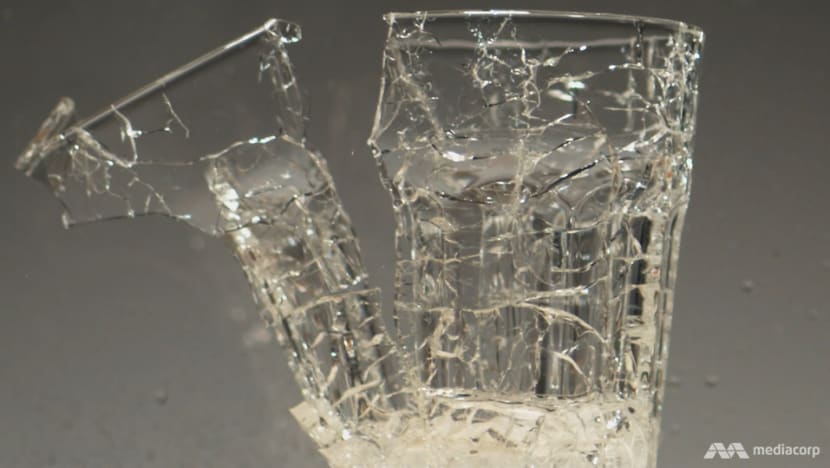
The danger is that all it takes is a few drops of water for this to happen.
SINGAPORE: Chinese New Year is round the corner, and hotpots will be a popular choice at dining tables.
Folks who remember an incident last year, however, might be more careful with the equipment than before. A “steamboat” dinner among friends made the news last January after a glass-topped table shattered 30 minutes into the meal.
It is one of several glass-shattering incidents at home that have gone the rounds on social media, including one in 2018 after a glass shower door shattered on a toddler.
More recently, social media user Joshua Lim escaped with minor injuries when a glass pot exploded on his stove.
He was boiling water to sterilise his baby’s milk bottles but had left the pot unattended. When he returned, the water level was low. So he poured in tap water, “and then boom”.
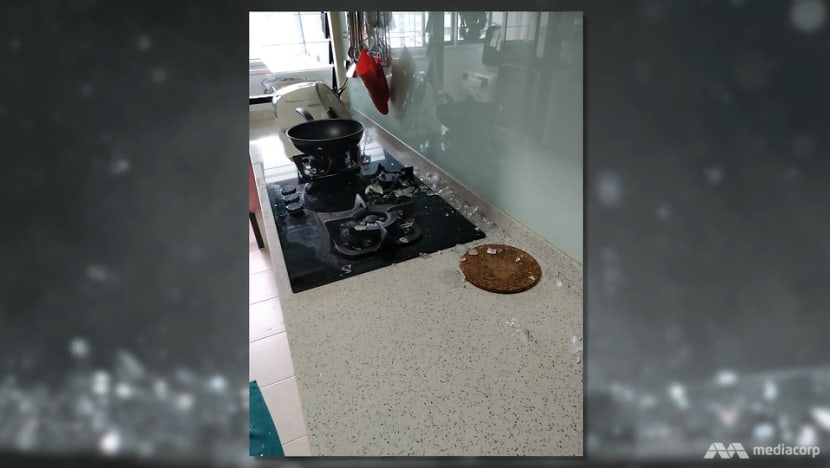
“Everything just shattered,” he said. “I spent a good five minutes just frozen on the spot. Like what just happened? How am I going to clean this up? Thankfully, the baby was outside.”
His family had used the pot for years, for example to make stews. So he did not see this mishap coming.
But glass can shatter when you least expect it, so the programme Talking Point finds out why and what can be done about it?
GLASS KITCHENWARE
In Lim’s case, materials science expert Leonard Loh from Nanyang Polytechnic’s School of Engineering is able to shed light on what happened.
“Glass is brittle, and it’s also a poor conductor of heat,” he said. “A sudden change in temperature causes stresses in the glass, and that can cause the glass to fail.”
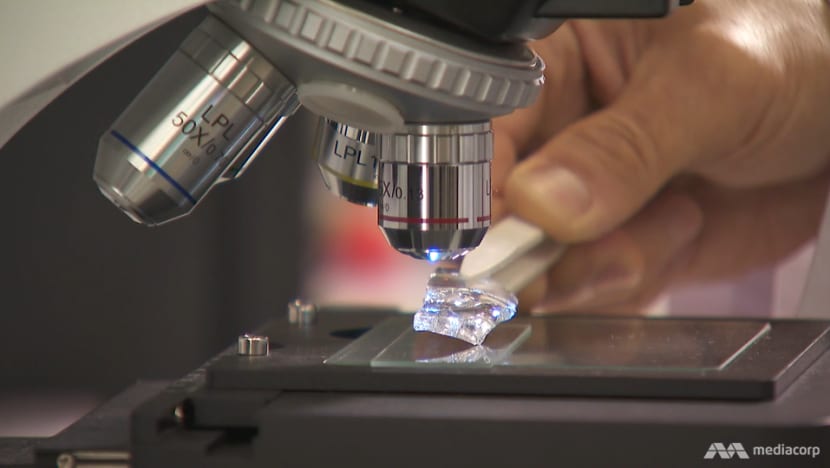
To demonstrate this, the senior course manager heated a glass cup to 300° Celsius and added tap water, which was about 25° Celsius. The glass cracked and shattered, in what is called a thermal shock.
Still, this is unlikely to happen at home, as glassware is not typically heated to such high temperatures, he noted. Most glass cookware is also made of borosilicate glass, which does not expand or contract as much as normal glass.
Besides borosilicate, glass cookware in Singapore is made from tempered soda-lime glass or a glass-ceramic mix — also designed to withstand temperature changes.
So why did Lim’s pot shatter? Another factor could have been at play: If one’s glass cookware has micro-cracks or small chips, it might not need such an extreme, sudden change in temperature to shatter.
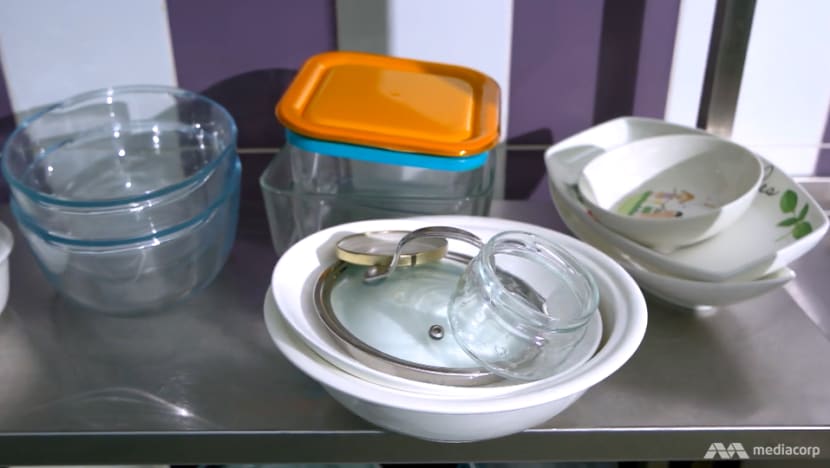
GLASS PANELS
Micro-cracks — so small they are invisible to the naked eye — can spread over time in glass panels too.
Over the past decade, at least 530 exterior glass panels at residential and commercial developments were reported to have shattered. That does not even include shower glass panels.
Glass installers Talking Point spoke to estimate that 50 per cent of glass breakages are due to improper handling and installation.
This includes installing glass pieces that are the wrong size for the supporting frame and being careless during the transfer and installation process.
“You’ve got to be very careful with the edges … the weakest part of the glass,” said glass specialist Don Tay of Grab Glass.
“In the case of a slight knock, (the edges) can chip off. It can shatter the whole glass.”
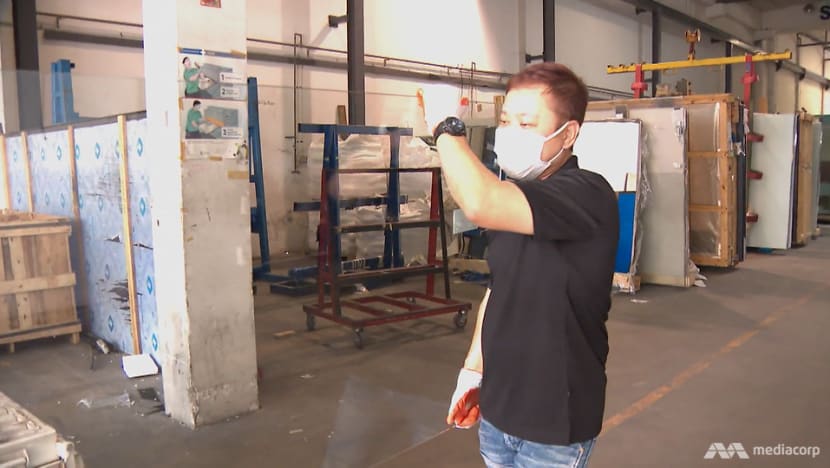
When his workers handle glass panels, they never place the edges directly on any hard surface.
When a panel is fitted into its metal frame, the edges are permanently cushioned by setting blocks to prevent them from rubbing against the metal, otherwise constant friction would chip the edges.
According to Tay, there is no way, however, for customers to check whether a glass panel is properly installed.
“Please go to professionals instead of general contractors, as professionals are the experts in handling the glass and ensuring the quality of the glass,” he advised.
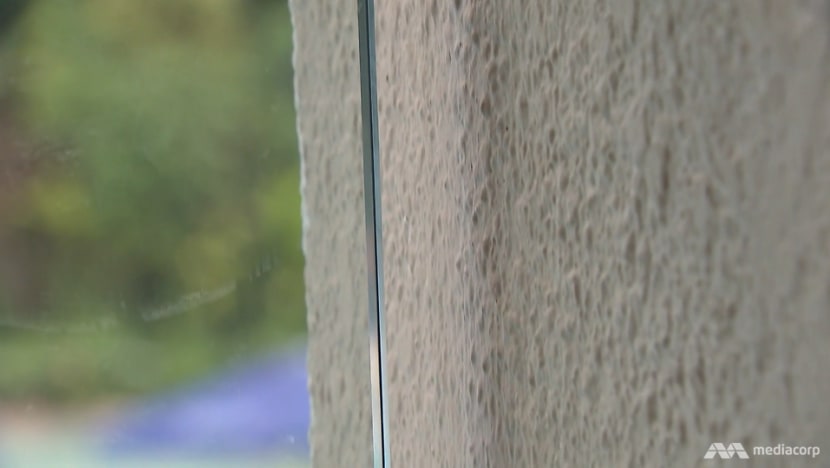
TEMPERED GLASS
Both glass kitchenware and glass panels can be made of tempered glass, classified as safety glass because it breaks into small pieces with rounded edges and thus is less likely to injure people when broken.
It points to why Lim escaped with a nick on his finger and a tiny hole in his shorts. If his pot were made of normal glass, it would have broken into pieces with sharp edges.
Tempered glass is fabricated by heating normal glass in a furnace that is between 650° and 700° Celsius. This softens the glass.
Cold air is then blasted to cool the outside of the glass faster than the inside, thereby compressing the surface and creating tension within. The glass becomes four to five times stronger than regular glass, and its breakage pattern changes.
WATCH: Why even tempered glass shatters (3:09)
Yet, from 2011, authorities tightened regulations for the use of tempered glass for safety barriers and at heights of 2.4 metres and above.
It turns out that the process of tempering glass can lead to spontaneous shattering.
“Normal glass contains impurities. And most of the impurities in the glass itself are safe, except for one type of impurity, which we refer to as nickel sulphide,” said quality assurance manager Chua Teck Huat from Singapore Safety Glass.
Nickel sulphide affects only tempered glass, unfortunately. The process of tempering causes the nickel sulphide to be unsafe.
If the impurity is present, it will be trapped as the glass is rapidly cooled. Over time, the nickel sulphide can expand and form micro-cracks, which can cause the glass to shatter without warning.
Singapore Safety Glass is able to test its products for nickel sulphide, said Chua. But it cannot monitor poor handling, either during transport or installation, in the same way.
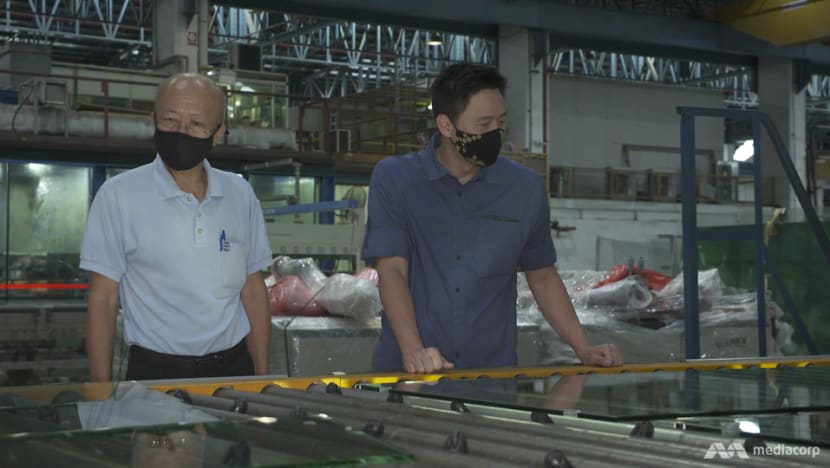
LAMINATED GLASS
There is, however, an alternative to tempered glass: Laminated glass, which is formed by bonding two pieces of glass with a piece of plastic, known as polyvinyl butyral, in the middle.
If one piece of the glass shatters, the other piece can hold the whole set in place, preventing it from falling and injuring people.
National Safety Council of Singapore deputy president Fong Kim Choy recommends laminated glass for use as shower panels and doors. But it costs about twice as much as tempered glass.
“Say they find it too expensive to change this to laminated glass — they can simply put safety film on both sides. That’ll also hold the broken shards or broken pieces of glass together,” he said.

For safe handling of glass at home, he cautioned against stacking glassware, as that can chip the edges. But if needed, cushion each piece with cardboard or cloth.
Also, breakage of tempered glass shelves in the fridge is “common”, so do not put heated items on them.
“Cool down the food a bit first before we put it in, and remember not to drop heavy containers like casseroles,” he advised.
EARLY DETECTION
To prevent more accidents, one person who is helping to design robots that can clean and scan glass panels for cracks is Mohan Rajesh Elara, an assistant professor of engineering product development at the Singapore University of Technology and Design.
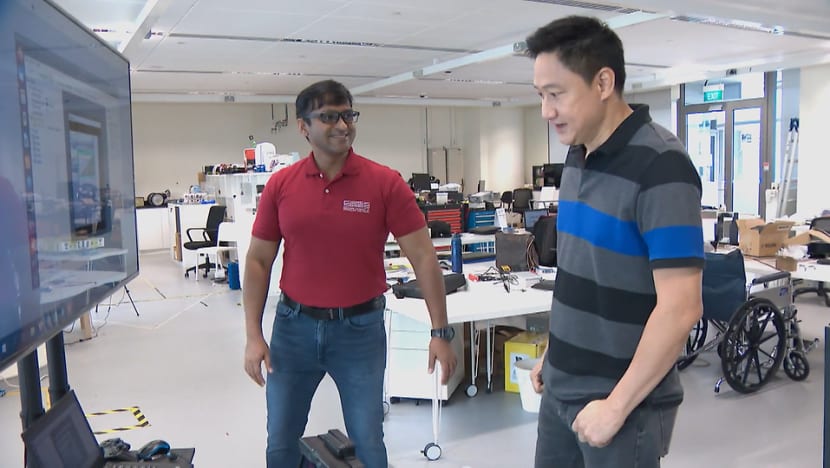
The idea is to have these robots alert the end users early so that they can take measures such as replacing a glass panel.
The robots use artificial intelligence to detect and classify cracks. But there are limitations at this time: Glass is transparent, so the robots might mistake elements in the surrounding environment for a crack.
To combat this, Mohan is working at adding acoustic and thermal sensing, as cracks reflect sound differently and retain more heat. This means the robots should be able to see, hear and feel.
“With robots doing the job, they can do it 24/7 … which is going to be difficult if it’s done as a manual process,” he said.
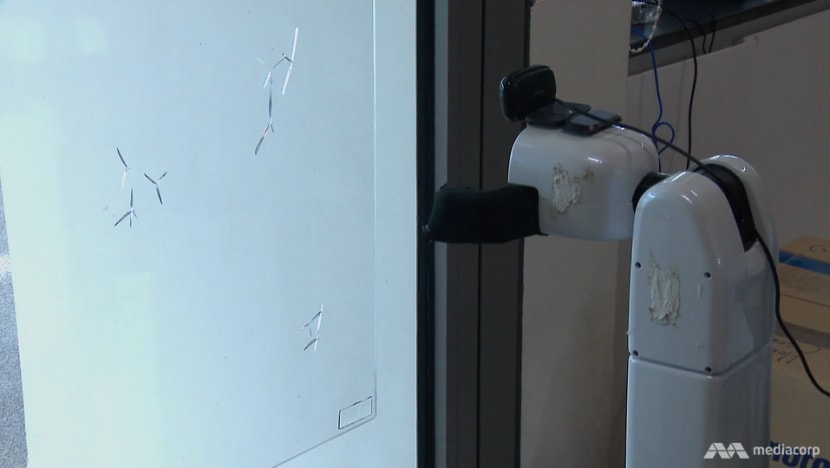
It will take about two years, however, before these robots can be deployed commercially. In the meantime, an increased awareness of safety may be needed, even as not all the reasons for glass suddenly shattering is within one’s control.
“The best we can do is to take note of the type of glass we’re using and how we’re using it,” said Talking Point host Steven Chia. “If you notice any chips or cracks on them as well, change them.”
Watch this episode of Talking Point here. The programme airs on Channel 5 every Thursday at 9.30pm.

















